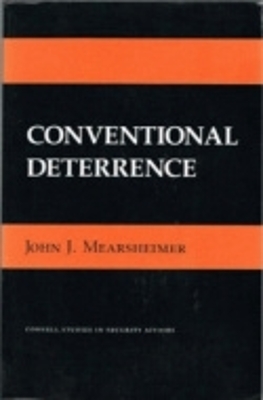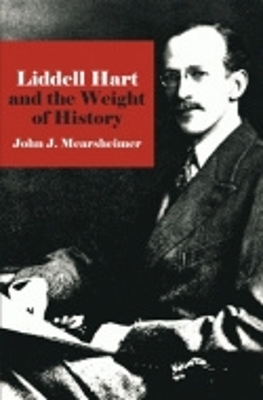Cornell Studies in Security Affairs
2 total works
Conventional Deterrence is a book about the origins of war. Why do nations faced with the prospect of large-scale conventional war opt for or against an offensive strategy? John J. Mearsheimer examines a number of crises that led to major conventional wars to explain why deterrence failed. He focuses first on Allied and German decision making in the years 1939–1940, analyzing why the Allies did not strike first against Germany after declaring war and, conversely, why the Germans did attack the West. Turning to the Middle East, he examines the differences in Israeli and Egyptian strategic doctrines prior to the start of the major conventional conflicts in that region. Mearsheimer then critically assays the relative strengths and weaknesses of NATO and the Warsaw Pact to determine the prospects for conventional deterrence in any future crisis. He is also concerned with examining such relatively technical issues as the impact of precision-guided munitions (PGM) on conventional deterrence and the debate over maneuver versus attrition warfare.Mearsheimer pays considerable attention to questions of military strategy and tactics. Challenging the claim that conventional detrrence is largely a function of the numerical balance of forces, he also takes issue with the school of thought that ascribes deterrence failures to the dominance of "offensive" weaponry. In addition to examining the military consideration underlying deterrence, he also analyzes the interaction between those military factors and the broader political considerations that move a nation to war.
For almost half a century, Sir Basil Henry Liddell Hart (1895–1970) was the most highly regarded writer on strategy and military matters in the English-speaking world and even today, his ideas are still discussed and debated. Although he helped to formulate Great Britain's military doctrine after the First World War, it was his critique of British strategic policy before and during the early years of the Second World War that earned him a seemingly unassailable reputation as a brilliant strategist.In this unflinching but balanced book, John J. Mearsheimer reexamines Liddell Hart's career and uncovers evidence that he manipulated the facts to create a false picture of his role in military policy debates in the 1930s. According to Liddell Hart's widely accepted account, his progressive ideas about armored warfare were rejected by the British army and adopted instead by the more far-sighted German generals. The Wehrmacht's application of his theory of blitzkrieg, he claimed, resulted in the defeat of France in 1940, a disaster he foresaw. Setting the historical record straight, Mearsheimer shatters once and for all the myth of Liddell Hart's prescience in the interwar period.Liddell Hart had, in fact, "been quite wrong on the basic military questions of the 1930s," Mearsheimer finds, "and his writings helped lead the British government into serious error. Wide recognition of Liddell Hart's misjudgments badly damaged his reputation during the war, and Mearsheimer shows how he mounted a successful campaign to restore his image. Although some of Liddell Hart's military theories are still relevant, Mearsheimer warns that they should be applied with caution. This troubling book offers a striking illustration of how history can be used and abused—how a gifted individual can create their own self-serving version of the past.Based on scrupulously documented evidence, Liddell Hart and the Weight of History is certain to be of great interest to those concerned with military policy and history.

